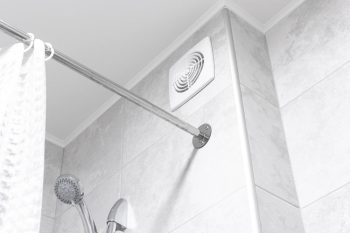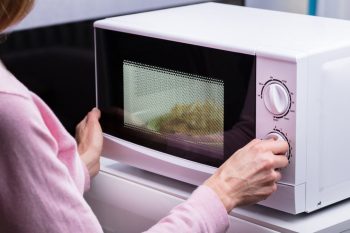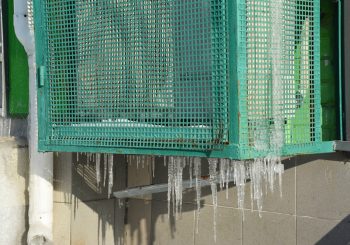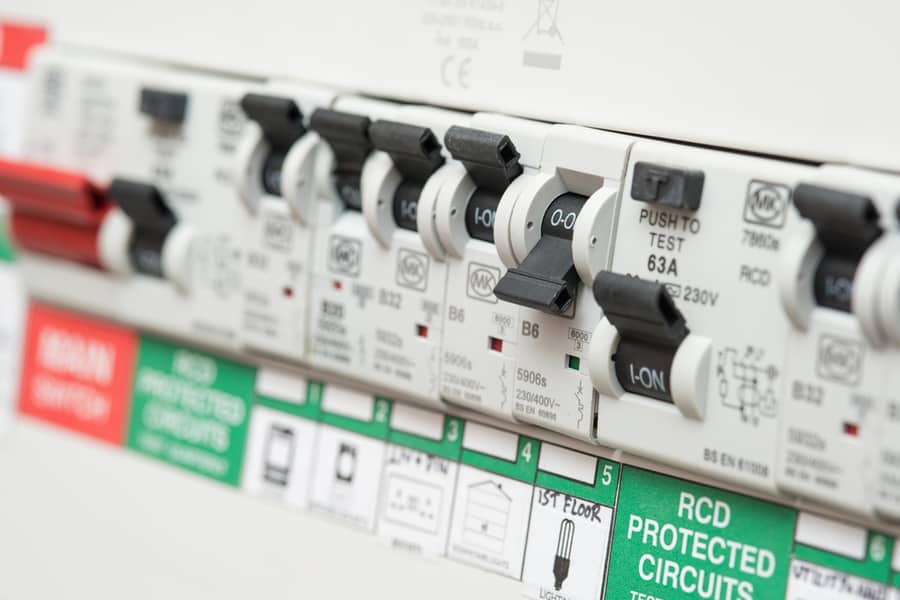
The discovery of electricity has been a huge game changer. Most appliances around the house require electricity to keep them running. However, electrical systems also come with a few challenges.
Tripping circuit breakers are one of the most common problems you can face. Though they are excellent devices for preventing electrical hazards, it can be worrying and irritating if your breaker keeps tripping too often.
So, why do circuit breakers trip? We have gathered some information to help you understand the issue and how to prevent it from recurring.
If your circuit breaker keeps tripping, your electrical system might have a problem with overloading, short-circuiting, arcing, or grounding faults.
Also, faulty connections, voltage spikes, or a defect breaker might cause frequent tripping.
Do you have an issue with your circuit breaker or electrical panel? Regular inspections and testing are essential to ensure circuit breakers are working efficiently.
What Is a Circuit Breaker?
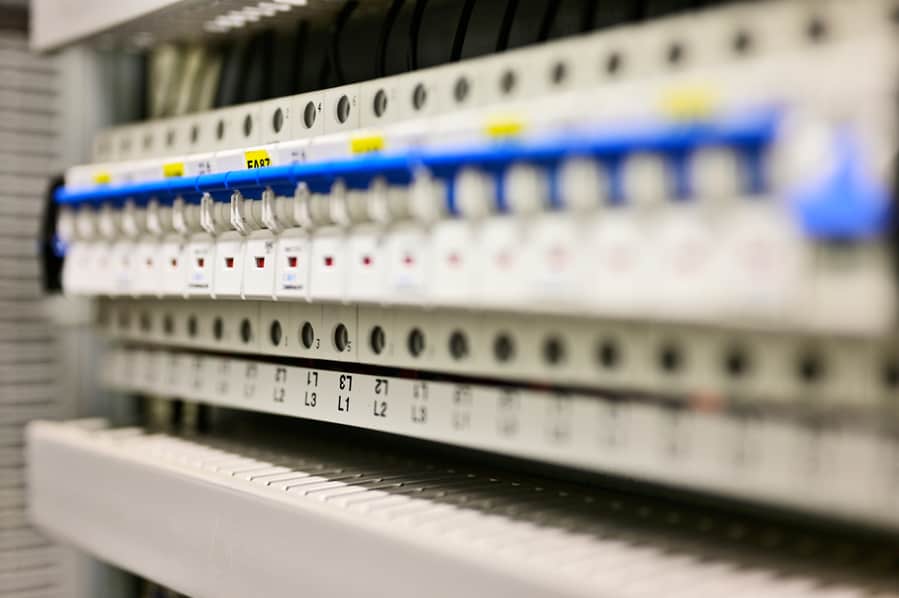
Before looking at what causes your circuit breaker to trip, let us look at what they are and what they do to protect your home.
A circuit breaker is an electrical device that protects your electrical circuits from damage. Breakers are designed to monitor and regulate current flow and prevent electrical hazards like electrocution or fires.
They have a switch that trips when there is an overload or short circuit. The devices are made from sensitive material that opens the circuit when the current exceeds the breaker’s rated capacity.
Cutting off the electrical connection prevents appliances from getting fried and reduces expensive repairs down the road.
Circuit breakers are housed in the electrical panel in the home or office. The electrical panel can be found in the garage, basement, under the staircase, utility closet, or hallway.
Reasons Why Your Circuit Breaker Trips
It cannot be overstated how essential circuit breakers are to ensuring your family and property’s safety. Though switching the breaker back on will restore power, if the problem persists, you might have an underlying issue that must be considered.
Many things can go wrong if you are trying to fix a circuit breaker yourself. If you have an electrical panel issue, always call a qualified electrician to assess and fix the problem.
Here are some of the reasons why your circuit breaker might be tripping:
1. Overloading
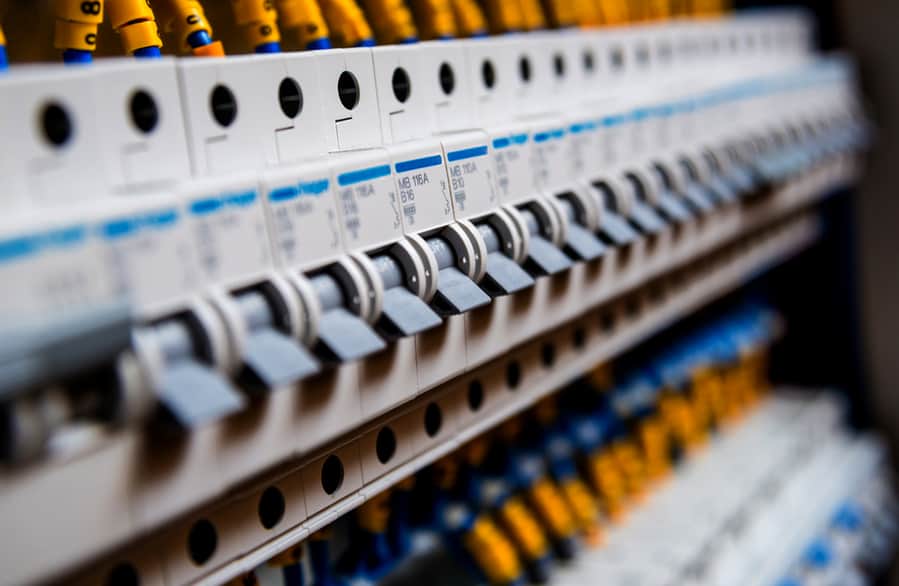
The most common reason for a breaker to trip is due to a circuit overload. Some circuits around the house require more current than others.
Circuit breakers have a fuse that matches the load-carrying capacity for the intended circuit, providing enough current to appliances depending on their demand. Overloading occurs when an electrical circuit tries to draw in a greater current load than it is supposed to carry.
In most cases, overloading can be caused by too many appliances around the house or office running simultaneously. If multiple devices are connected to the same outlet, it might also lead to overloading.
In addition, if you have a high-wattage appliance like an HVAC or heating pump connected to a low-current circuit, it might cause an overload.
During an overload, the high electricity demand can cause the wires to heat up and start an electrical fire. The breaker trips when its load-carrying capacity is exceeded, preventing electrical fires and damage to your TV or refrigerator.
It is essential to understand how much power your appliances need if you want to prevent overloading. Doing so allows you to unplug high-wattage devices and put them on breakers that match their power demand.
If your circuit breaker keeps tripping due to an overload, your power consumption is too high, and your electrical system needs an upgrade.
2. Short Circuits
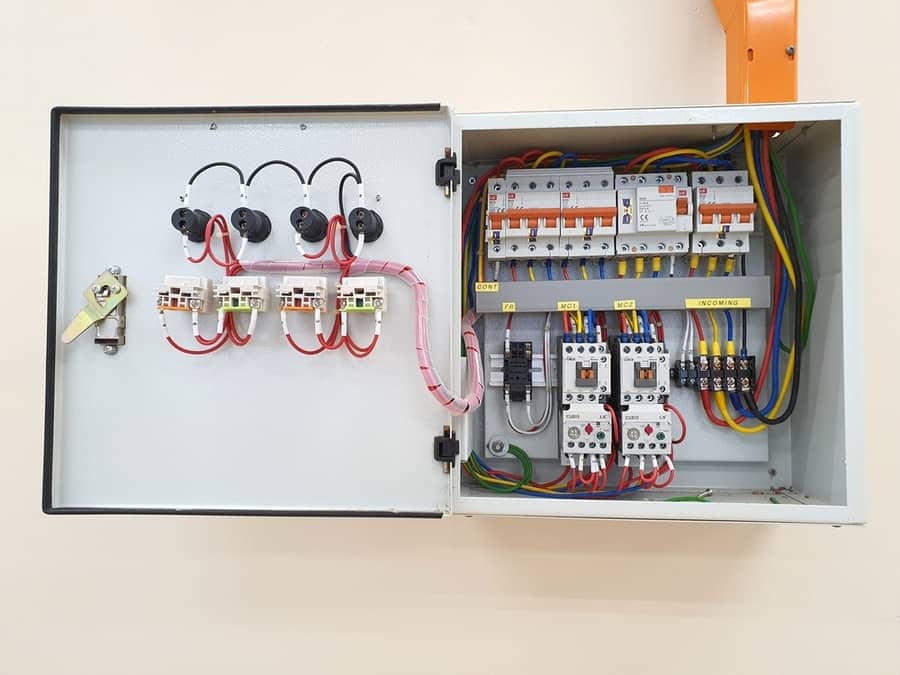
Secondly, short circuits are also a common issue that can lead to your breaker tripping.
A short circuit occurs when an electrical current bypass its intended path, finding a path of least resistance. This is caused by a hot wire coming into direct contact with a neutral wire, ground wire, or a metal surface.
During the short circuit, the low resistance path drastically increases the current flowing through the circuit. In the process, the increased current flowing through the breaker exceeds its rating capacity, causing it to trip.
If your circuit breaker trips again immediately after resetting it, there is a likelihood that you are dealing with short-circuiting.
However, diagnosing a short circuit can be challenging, especially if it is caused by faulty wiring or loose connections. The best thing to do is to have a professional look at the issue and try fixing it.
3. Arc Fault
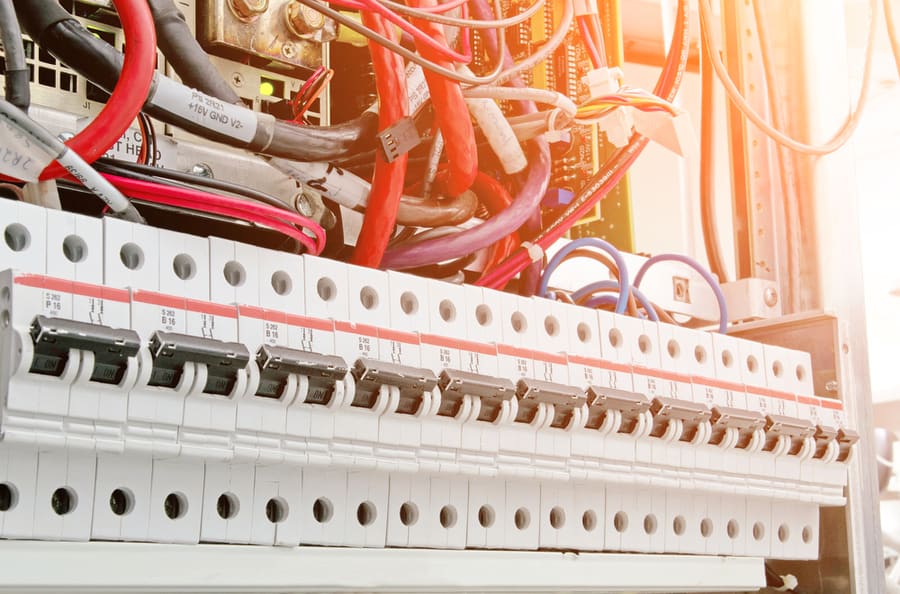
Another reason for your breaker tripping is due to arc faults.
An arc fault happens when an electrical current jumps from one connection to another. Arcing is usually caused by loose, damaged, or naked wiring getting too close together or even coming into partial contact.
There are two types of arc faults. Parallel arcing occurs when the current jumps from one circuit into another. On the other hand, Series arcing occurs when current jumps along the same circuit, like jumping from one part of the wire to another.
Arc faults are notorious for sparking and causing electrical fires in most homes. Arc Fault Circuit Interrupters (AFCI) and Combination Arc Fault Circuit Interrupters (CAFCI) are designed to identify power fluctuations caused by arcing and cutting off the connection.
If an arc fault is causing the issue, we recommend letting a professional electrician handle the issue.
4. Ground Fault

Your breaker-tripping problem may also be a result of a ground fault.
A ground fault happens when a hot wire comes into contact with the ground wire of an appliance or the metal wall box that protects the electrical panel.
This causes a current leak as electricity tries to find the shortest path for grounding. Ground faults can be hazardous due to the high risk of electrocution.
Ground Fault Circuit Interrupters (GFCI) breakers are designed to monitor and cut off any current flow during a ground fault. These circuit breakers are beneficial in moist areas around the house, like kitchens, bathrooms, and laundry rooms, as they prevent electrical shock.
5. Faulty Electrical Connection
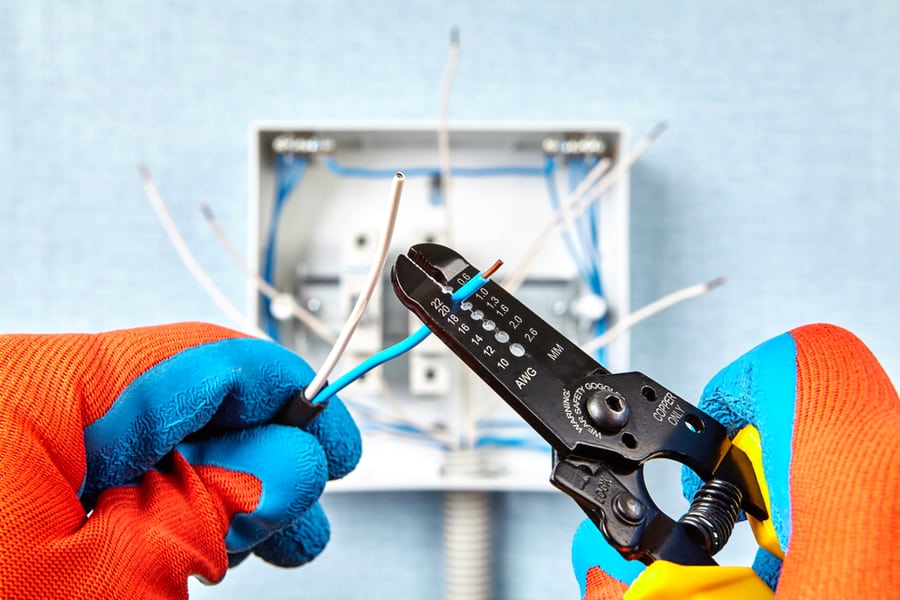
The issue might also trickle down to wrong wiring. Wiring is like the veins of your electrical system.
As current flows through the wires, it can cause them to heat up and expand, leading to wear and corrosion. Likewise, wiring damaged by pests and rodents can also do a number on your electrical system.
A faulty connection can have an issue handling large electrical loads flowing through it. This causes it to heat up, leading to the circuit breaker tripping.
Additionally, naked wiring and loose connections are more prone to arcing, leading to a breaker issue.
Always let a professional handle any faulty wiring around your house, especially if the issue concerns the electrical panel.
6. Voltage Spike
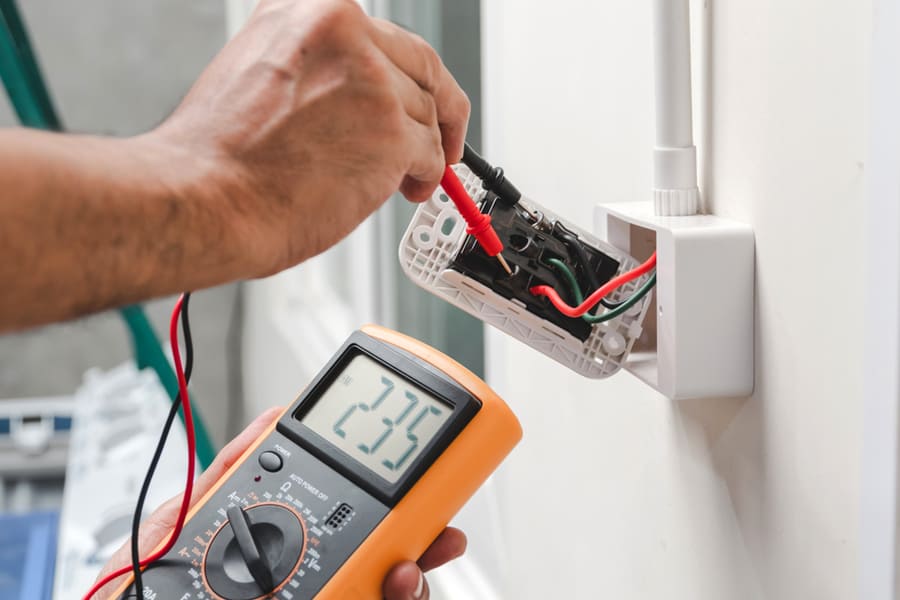
Voltage spikes can also be the culprit for your tripping breaker.
Though not too often, a sudden increase in a circuit’s voltage supply can lead to the issue. This might happen during lightning strikes or a fault in the power supply line.
In most cases, the breaker identifies the drastic increase in current as an overload and trips the fuse before any damage is done.
If you notice any voltage spikes in your area, it is always a good idea to call an electrician to assess if there is any damage to your appliances and their circuits.
7. Old or Defective Circuit Breaker
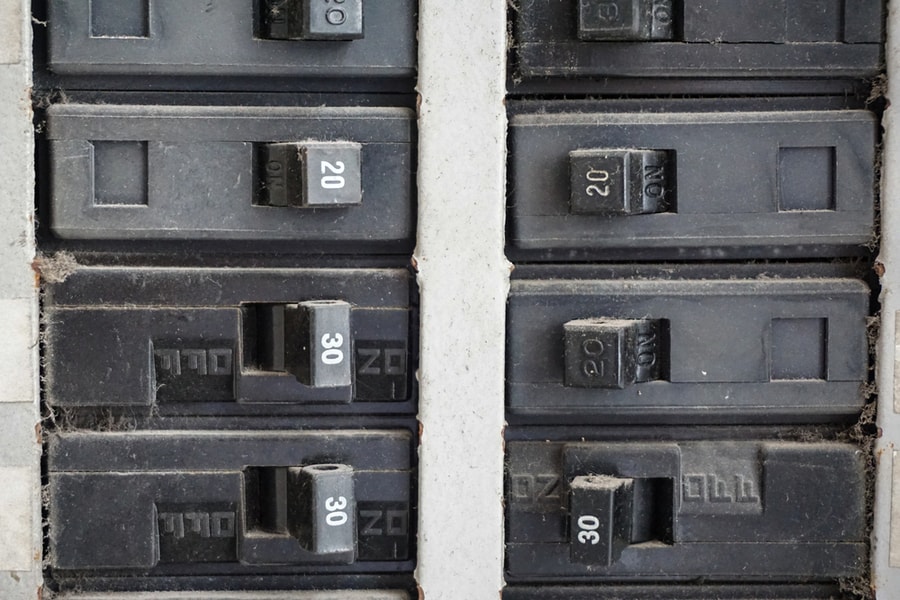
Lastly, old or defective circuit breakers can also cause tripping.
Over time, thermal expansion can cause breakers to get worn out. This can cause loose connections or the fuse to get overly sensitive to current, leading to the switch tripping even when the breaker is not overloaded.
If you think you have a defective breaker, your electrician is well-equipped to test the device’s efficiency and performance.
Conclusion
Are you worried that your circuit breaker keeps tripping? Breakers are essential devices that protect you and your property from electrical hazards.
However, if you notice a problem with your breaker frequently tripping, you should have a qualified electrician look at the issue.
Common reasons for your circuit breaker issues include overloading, short-circuiting, arc faults, and ground faults. Likewise, the device might trip if you have faulty wiring, a voltage spike, or an old circuit breaker.
Frequently Asked Questions
What Is the Most Common Cause of a Tripped Breaker?
An overloaded circuit is the most common reason for your tripping breakers. Each breaker has a current that it is intended to carry.
However, if this current capacity is exceeded, the breaker trips, cutting off power throughout the circuit.
What Causes a Breaker To Trip and Not Reset?
If your breaker keeps tripping immediately after resetting it, you might have a short circuit problem. A short circuit occurs when a hot or live wire touches the neutral wire.
Due to the low resistance, excess current flows through the circuit, causing the breaker to trip even after resetting it.

